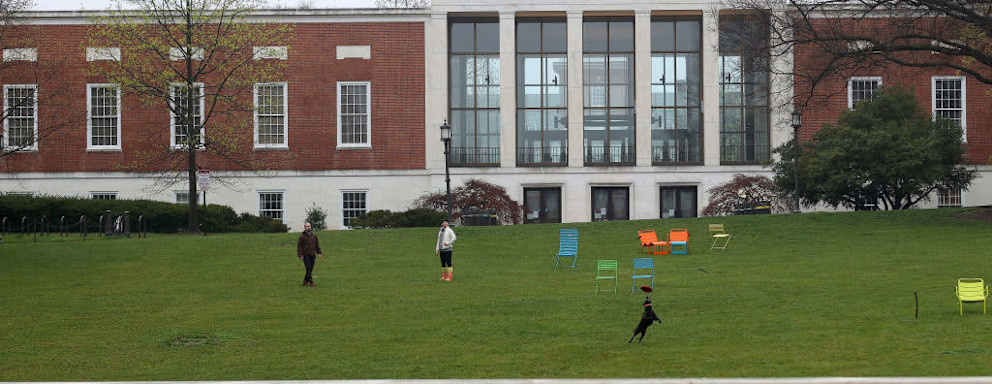Johns Hopkins University Graduate Students File to Form Union
 Credit: Image Credit: Rob Carr / Staff / Getty Images News / Getty Images
Credit: Image Credit: Rob Carr / Staff / Getty Images News / Getty Images- Over 3,000 graduate student workers signed union cards to support the unionization effort.
- Among other things, organizers hope to negotiate a living wage for all student workers.
- The university, however, refused to voluntarily recognize the union.
Students at Johns Hopkins University hope to be the next in a wave of graduate student unions across the U.S.
Graduate students at the highly selective university filed union paperwork with the National Labor Relations Board (NLRB) on Dec. 2. The move could see 3,335 graduate workers create Teachers and Researchers United, which would fall under the United Electrical, Radio and Machine Workers of America labor union.
According to Daily Union Elections, this is the fourth-largest NLRB election filing of 2022.
The unionization effort includes only graduate students enrolled in Johns Hopkins University doctoral degree programs that provide instructional and research services. This includes teaching assistants, research assistants, and fellows.
It does not, however, include undergraduate students or nondegree-seeking graduate students.
The chief reason for unionizing, according to Teachers and Researchers United, is to guarantee graduate students a living wage. An op-ed from lead organizers asserts that the cost of living in Baltimore is $40,000 per year, but many graduate students are not getting a yearly stipend that large.
The organizers say that the Krieger School of Arts and Sciences announced a stipend increase just two weeks after it launched its union card campaign. However, that increase was to $34,500 per year.
The op-ed called the move “an attempt to follow an anti-union playbook that has been adopted by universities across the country.”
Teachers and Researchers United also stated that the university has repeatedly made late payments to students in recent years. The union wants the university to guarantee on-time payments for graduate workers or to offer interest-free loans from the university for students experiencing pay delays of one or more weeks.
Graduate student workers told the Baltimore Business Journal that they hope to host a union election in the spring semester of 2023.
Johns Hopkins University students follow others at prominent universities seeking a union in 2022. The three largest union filings of 2022 all include graduate student workers, according to Daily Union Elections:
- Massachusetts Institute of Technology — over 5,100 workers
- Yale University — 4,000 workers
- Northwestern University — 3,500 workers